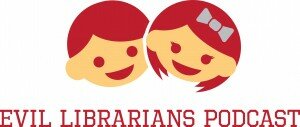 If you have not been introduced to Ello.co yet, allow me the pleasure. Ello is a nascent social network with a conscience and a manifesto (which reads).
If you have not been introduced to Ello.co yet, allow me the pleasure. Ello is a nascent social network with a conscience and a manifesto (which reads).
Your social network is owned by advertisers.
Every post you share, every friend you make, and every link you follow is tracked, recorded, and converted into data. Advertisers buy your data so they can show you more ads. You are the product that’s bought and sold.
We believe there is a better way. We believe in audacity. We believe in beauty, simplicity, and transparency. We believe that the people who make things and the people who use them should be in partnership.
We believe a social network can be a tool for empowerment. Not a tool to deceive, coerce, and manipulate — but a place to connect, create, and celebrate life.
You are not a product.
Powerful stuff. Useful stuff? Not quite yet. I love the mission of Ello, but have little use for the service thus far. The key to a good social network for me, is being able to find the people that I want to interact with. I do not socially network randomly very often. Ello is still in Beta format and is by invitation only. Anyone can request an invite, but currently I cannot find enough of my family and friends on Ello to actually consider abandoning Twitter or Facebook. So, as long as I have to continue using Twitter and Facebook, Ello is not yet taking hold in my life. But I want it to. I do not want to be Mark Zuckerberg’s reluctant product any longer.
There are important questions to ask though. Is Ello’s model sustainable? They believe that it is. The company is registered as a Public Benefit Corporation, which is a for profit business that creates a benefit for society. From their own site this means:
1) Ello shall never make money from selling ads;
2) Ello shall never make money from selling user data; and
3) In the event that Ello is ever sold, the new owners will have to comply by these terms.
In other words, Ello exists for your benefit, and will never show ads or sell user data.
That does not mean that it is sustainable though. Will they make enough profit or raise enough money to have the capacity to support the large networks that we all now expect? Will they have the resources to protect data from hackers? Not selling our data does not mean that it is protected. Will this turn into a donation supported PBC? As a huge supporter and user of Wikipedia.org, I would much rather donate $10 a year for a great social network, than continue being the product of Twitter and Facebook. All of these questions will be answered in time, but most importantly, Ello must grow. Its functionality and usefulness will grow for me, as I am able find the people I want within its network.
By: Dustin Fife, Outreach Librarian for Utah Valley University



